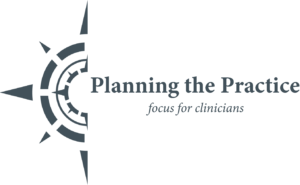
How to Avoid Burnout
Deloitte’s 2015 workplace pulse survey was conducted to understand how employees view work-life balance and well-being at their organization. The survey sampled 1,016 full-time employed adults across generations, in the United States. There were several interesting findings:

- One-third of employees do not feel comfortable taking vacation time.
- 77% experienced employee burnout at their current job.
- 91 % of respondents say having an unmanageable amount of stress or frustration negatively impacts the quality of their work.
- 83% of respondents say burnout from work can negatively impact their personal relationships.
- Nearly 70% of professionals feel their employers are not doing enough to prevent or alleviate burnout within their organization.
- 21% of respondents say their company does not offer any programs or initiatives to prevent or alleviate burnout.
- 84% of millennials say they have experienced burnout at their current job, compared to 77 percent of all respondents.
- Nearly half of millennials say they have left a job specifically because they felt burned out, compared to 42 percent of all respondents.
Further, A new survey, from FlexJobs and Mental Health America (MHA) taken late last month reported that 75% of workers have experienced burnout, and 40% of those polled said it was a direct result of the coronavirus pandemic. Clearly, American’s are continuing to struggle with burnout. What are some ways you can avoid burnout in your role?
Turn Off
No matter your work environment, work from home parent, remote worker, commuter, flex schedule, etc. it is critical to learn to set boundaries. As a researcher that has an interest in the interaction between work and family, I have studied this phenomenon for years. As these articles are not meant to be focused on research, I’ll say anecdotally there appears to be too much spillover between work and family. There may be many reasons this spillover is occurring and there are many ways to think about and respond to it. However, not setting healthy boundaries between your work environment and your home or personal environment is setting you up for experiencing burnout.
‘Turning off’ is actually pretty difficult for me but over the past year I have made significant progress. I love technology and like the feeling of being ‘connected’. But the pandemic contributed to my need to learn to set healthier boundaries in many areas. One of the first things I did was to stop watching the news. This one thing helped my mood improve I wondered what else I needed to turn off.
I then turned off all notifications on all my devices. While I still receive work emails on my phone, I am no longer notified of it. I even turned off notifications on my computer. Although I have my mail client open almost all day, I no longer see the notifications of a new email coming in.
My turning off has also extended to everyone in general. I have set a quiet mode on my phone so that after a certain time I no longer receive notifications of any kind. Some may call this insane and at first, I felt that way. Then I remembered what it felt like to be less connected when I was growing up.
I never felt the need to respond instantly to anyone. If someone called and I wasn’t home or didn’t answer the phone, they just didn’t get to talk to me. There was no leaving a message, texting me, using social media to get in contact with me. There wasn’t even email. If something was really important we dealt with it in person the next time we saw each other.
To be clear, I am not advocating getting rid of any technology. Again, I love technology and am usually an early adopter and sometimes a beta tester for new technology. But when we fail to set healthy boundaries on advances in technology, we can become easily and naïvely overwhelmed.
Whether your boundaries are related to technology or not the point is, you need to schedule time for turning off.
Avoid Perfection Seeking
I am also of the opinion that perfection-seeking can easily lead to burnout. Do you know a perfectionist? These are the people that obsess over every detail of every project until it is just right. The thing is though, it is never right. When this happens, people tend to focus on work outside of work hours. To the previous point of turning off, make sure you set healthy boundaries. These healthy boundaries include having set work hours and not working past them. They also include challenging your mindset on whether it is okay to fail, to make mistakes, and what that means for you. I’ve written previously on the difference between a fixed and growth mindset.
Take Regular Breaks
I have been pretty good over the past two years about taking at least one vacation and two personal retreats each year. I have also been able to take quite a few long weekend getaways. These are regular physical breaks from work. These are necessary but what I need to work on is taking regular mental breaks.
Whether you are on vacation, a long weekend getaway, or on a lunch break during your workday, it is important to practice taking breaks and using them to mentally step away from a task at hand. Have you ever noticed that you often get your best ideas when you’re taking a shower? One of the reasons this happens is because you are often able to mentally step away from the concerns of the day and relax, no matter how briefly.
Maintain Your Health
Our health is important when it comes to avoiding burnout. Among all the other things I need to work on this is probably the biggest. I have learned that I feel best when I eat healthily and can spend some time getting exercise. Not only does my body feel good but my mind feels good when I make healthier decisions.
More than making good decisions about eating and exercising, good mental health is important. There are many ways to focus on good mental health. Finding a good therapist or having a close confidant that you can talk to about anything can be helpful. Sometimes, finding activities that you enjoy and will get you mentally away from the work you do can be incredibly helpful. To a lesser extent now but at one time my mental health care was to watch a good movie or binge-watch something I’d enjoy on Netflix. Whatever your strategy is, make sure it gets your mind off the work you do and allows you to mentally rest.
Prioritize
I don’t think this needs a lot of explanation. Sometimes we are overwhelmed to the point of burnout because we haven’t prioritized appropriately. We overestimate the available time we have and underestimate the time a task may take. We get too focused on turning off, taking breaks, and maintaining health that we forget we still have work to do. There is a flow, perhaps a natural flow, to our lives that we don’t often consider. Thinking metaphorically of a river, there are times when our life is full and rushing downstream and other times before the rains come our life is more relaxed, like your favorite lazy river ride. Prioritize what is truly important and what will keep you flowing in a way that is less overwhelming.
What are some ways you have kept yourself from feeling overwhelmed or attempting to avoid burnout? Head over to our Facebook page or leave a comment below to keep the conversation going.